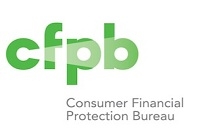Advertisement
CFPB Sets Forth Mini-Correspondent Guidance for Brokers

The Consumer Financial Protection Bureau (CFPB) has published guidance regarding mortgage brokers transitioning to a “mini-correspondent” lender model. The CFPB is concerned that some mortgage brokers may be shifting to the mini-correspondent model under the belief that identifying themselves as such would automatically exempt them from important consumer protection rules affecting loan officer (LO) compensation. The guidance sets out how the Bureau evaluates mortgage transactions involving mini-correspondent lenders. It confirms who must comply with the broker compensation rules, regardless of how they may describe their business structure.
“Before the financial crisis, consumers seeking mortgages were steered toward high-cost and risky loans that were not in the consumer’s interest,” said CFPB Director Richard Cordray. “The CFPB’s rules on mortgage broker compensation are intended to protect consumers from this type of abuse. Today, we are putting companies on notice that they cannot avoid those rules by calling themselves by a different name.”
Mortgage brokers connect borrowers with lenders who underwrite and fund loans. In contrast, a correspondent lender, as generally understood in the mortgage industry, processes applications, provides legally required disclosures, frequently underwrites the loans, makes the final credit approval decision, funds the loans, and sells them to investors.
In January 2014, new CFPB mortgage rules took effect protecting homebuyers from risky lending practices. Building upon regulations issued by the Federal Reserve Board in 2010, the rules provide important consumer protections by prohibiting financial incentives for brokers to push borrowers toward risky loans. They also require lenders to include mortgage broker compensation in calculations determining whether a loan meets certain consumer protection standards.
The CFPB is concerned that some mortgage brokers may be setting up arrangements with investors in which the broker claims to be a “mini-correspondent lender,” when in fact the broker is still essentially just facilitating a transaction between a borrower and a lender. While some brokers may be setting up such arrangements because they intend to grow into full correspondent lenders, the bureau is concerned that other brokers may simply be attempting to evade consumer protection rules. This guidance confirms that mortgage brokers who merely choose to describe themselves as mini-correspondent lenders are not automatically exempt from applicable consumer protection requirements.
The guidance sets out some of the questions the CFPB may consider in evaluating mortgage transactions involving mini-correspondent lenders in order to understand their true nature. This evaluation involves examining how the mini-correspondent lender is structured and operating, for example: whether it is continuing to broker loans; its sources of funding; whether it funds its loans through a bona fide warehouse line of credit; its relationship with its investors; and its involvement in mortgage origination activities such as loan processing, underwriting, and making the final credit approval decision.
“MBA applauds CFPB for taking the positive step of issuing written guidance in response to specific industry requests, and feels this is a move in the right direction. Additionally, we suggest the CFPB provide examples of mini-correspondent arrangements that have passed (or failed) examinations in future issues of its supervisory highlights. MBA also looks forward to working with the Bureau to identify other areas where further guidance is needed,” said Pete Mills, senior vice president of Residential Policy and Member Services with the Mortgage Bankers Association (MBA).
The guidance makes clear that no single question necessarily determines how the CFPB may exercise its supervisory and enforcement authorities, and that the facts and circumstances of the particular mortgage transaction being reviewed would be relevant to how the bureau exercises these authorities.
"The CFPB Director set a stern tone when he let the mortgage industry know the Bureau is taking official action on the increase of mortgage originating 'mini-correspondents' in recent years," said John H.P. Hudson, VP of regulatory affairs at Premier Nationwide Lending. "It would appear there is a push towards a 'you are either a mortage broker or a mortgage banker' environment."
About the author




